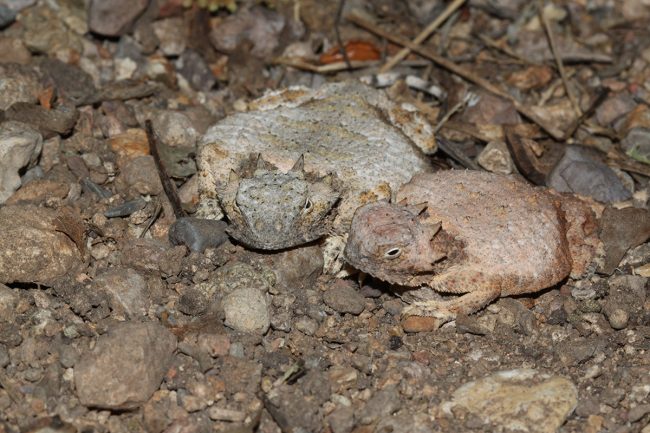Georgia Southern biology professor receives National Science Foundation grant to study hormones, growth

Department of Biology Professor Christian L. Cox, Ph.D.
Georgia Southern University Department of Biology Professor Christian L. Cox, Ph.D., has received a grant from the National Science Foundation to study a long-standing question in evolutionary biology about hormones and growth.
Working with colleagues from the University of Virginia and Rutgers University, Cox is funded to conduct a three-year series of experiments and genetic analyses designed to better understand how the hormone testosterone affects the expression of genes that regulate growth.
In many species of vertebrates, males are larger than females. Thus, testosterone is traditionally viewed as a promoter of growth. This relationship has also been thought to be resistant to change and an important constraint on the evolution of alternative patterns of growth.
“Most research on how testosterone works has focused on species important for agriculture or medicine in which males happen to be larger than females,” explained Cox. “By studying animal species where females are larger than males, we can gain a more complete understanding of how hormones regulate different patterns of growth in the sexes.”
Cox and his colleagues will study lizard species in which females are larger than males, and testosterone actually inhibits growth in males. These “evolutionary reversals” raise the possibility that the effects of testosterone and other hormones on growth are more flexible than previously thought and can respond readily to natural selection, which is the process in nature where organisms better adapted to their environment survive and reproduce more than those less adapted to the environment.

The roundtail horned lizard, or Phrynosoma modestum
This research will focus on these reversals in order to quantify how testosterone regulates growth across species in which males are larger and those in which females are larger. Cox and his collaborators will accomplish this by measuring the effects of testosterone on the expression of thousands of genes. The goal is to understand how hormones regulate growth at the genetic level.
“The novelty of our approach is that we will be able to manipulate testosterone and simultaneously measure the expression of thousands of genes in many species of lizards,” explained Cox. “This approach is possible because we will employ high-throughput genomics, a technology that can sequence thousands of genes at a relatively low cost.”
Ultimately, this research will broaden the understanding of the vertebrate endocrine system (the system that produces hormones) and how males and females can differ in appearance despite sharing the same genetic information. In particular, it will clarify how even closely related species evolve different physiological responses to the same hormone.
Cox’s work will also train high school teachers to better understand and apply biological research via a workshop and an intensive fellowship program. Biology students from Georgia Southern, the University of Virginia and Rutgers University will benefit from the project.
Georgia Southern University, a public Carnegie Doctoral/Research institution founded in 1906, offers 141 degree programs serving more than 27,000 students through nine colleges on three campuses in Statesboro, Savannah, Hinesville and online instruction. A leader in higher education in southeast Georgia, the University provides a diverse student population with expert faculty, world-class scholarship and hands-on learning opportunities. Georgia Southern creates lifelong learners who serve as responsible scholars, leaders and stewards in their communities. Visit GeorgiaSouthern.edu.
Posted in Awards and Recognition, Press Releases

